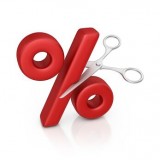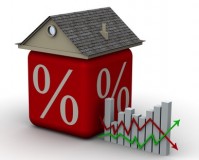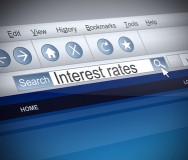By The Spy on
September 12, 2016
Mortgage competition is an exquisite thing, especially on days like this. Canada’s 5-year government bond yield sprang to a two-month high today. Normally that’s a cluethat fixed mortgage rates are on the up escalator. Not this time. Instead, 5-year fixeds defied bonds (and logic) and actually dropped — at least the ones tracked by RateSpy.com. The nation’s leading 5-year fixed...
read more
By The Spy on
August 8, 2016
Crude oil and mortgage rates have had a cozy correlation in recent years. More often than not, they move in the same direction. Last week oil dipped below$40—more than 20% beneathits June peak. That was enough to officially put itback in bear market territory, a quandary for Canada’s resource-dependent economy. Overthe last few days, oil has bounced somewhat to $42-ish....
read more
By The Spy on
July 14, 2016
Yesterday’s Bank of Canada Decision: Roses in a Weed-patch You’ve got to hand it to Bank of Canada head Stephen Poloz. He’s remained as optimistic as a dog before dinner. The problem is, the BoC’sundying economic optimism doesn’t jibe with itsrepeated cuts to Canada’s growth outlook. The BoC wants to stay positive because negativity doesn’t help recoveries. It wants us...
read more
By The Spy on
June 17, 2016
Unlike us mortgage geeks, you may nothave time to sit and gawk atrates all day. That’s why we’re juicedabout the Spy’s latest feature: Rate Alerts. Literally dozensof readershave askedfor them and our trusty coders have delivered.Rate Alerts let you create up to five alarms that trigger when your custom criteria are met.Here are just a few examples: Tell me when...
read more
By The Spy on
May 25, 2016
Somebody poke us when the Bank of Canada has a rate meeting of consequence. At the moment, the BOC is doing the same thing as everyone else, watching see-saw economic data for inflation clues. That’s sort of like watching a TV full of static and trying to make out a picture. Despite hints of stronger inflation, the tentative economy gave...
read more
By The Spy on
May 15, 2016
When it comes to the best variable rates, the trend has becomeour friend. Floating ratescontinue to creeplower after spiking at the end of 2015. Much of the improvement is thanks to shrinking credit spreads. In other words, lenders have beenpaying less to access short-term capital in the financial markets than a few months ago. Another part of the equation is...
read more
By The Spy on
May 10, 2016
Down payments are the entry fee tohome ownership, and in some cities that fee has shot upbig time. But while rising pricesand government rule-makinghave forced homebuyers to save a bigger ante, modest income gains and the lowest rates in alifetime have kept monthly payments tolerable, in all but a fewboom towns. And you probably know which ones. Thistable paints the...
read more
By The Spy on
May 4, 2016
Not So Fast… A slew of lenders have hoistedfixed mortgage rates in the last few weeks. Their motivation was the recent spike in government bond yields, which hit multi-month highs and (temporarily) boosted banks’ funding costs. Meanwhile, numerouslenders simply absorbed those higher yields and kept their rates as-is. For mortgage providers, staying price-competitive is not optionalinthe March through June stretch,...
read more
By The Spy on
April 5, 2016
Put Down Less, Get a Better Rate Lenders want insured mortgages…badly—and they’re still slashing rates to attract them. The best insured 5-year fixed mortgage rates are now 15 basis points below uninsured rates (uninsured rates apply to mortgages with 20% or more equity). That’s not normal. Prior to the last few months, the spread between the two was running closer...
read more
By The Spy on
March 26, 2016
Floating Rates Getting Cheaper We’ve seen modest improvement in variable mortgage ratesover the last two weeks. Nothing ground breaking—about 0.05 percentage points of extra discounting—but it’s a start. Big banks are currently averaging prime – 0.35% if you ask nicely or negotiate, while non-banks and brokers are at least a tenth to one-quarter point cheaper. Financial markets stillanticipate one more...
read more
 log in
log in









